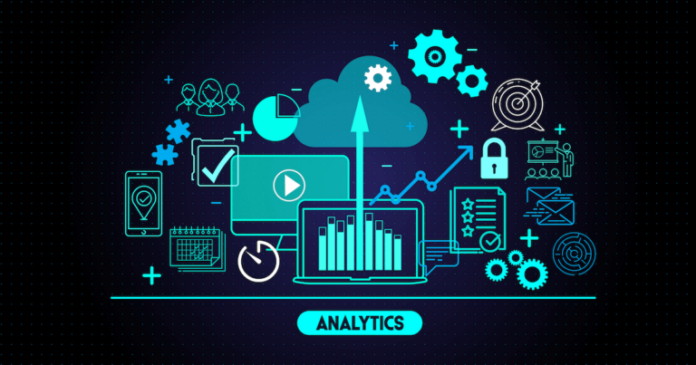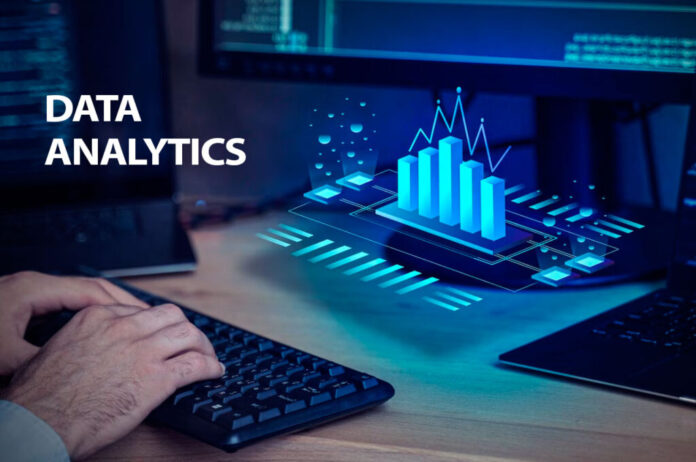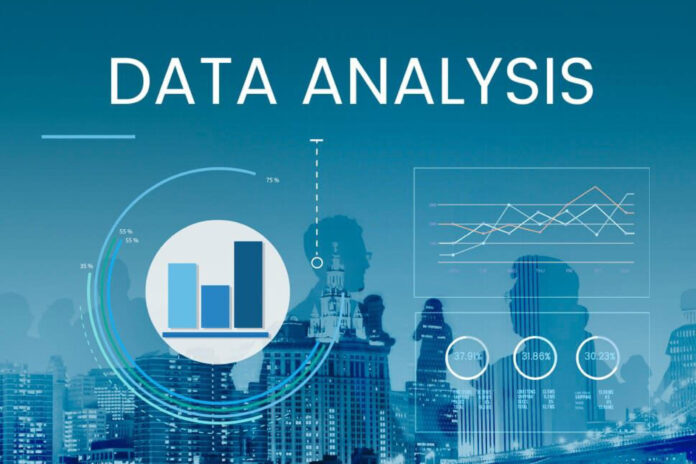Are you an international student dreaming of a thriving tech career?
The tech industry is booming, offering diverse opportunities for skilled professionals. Data Analytics is a part of the tech industry that has seen massive growth in the past 5 years.
The demand for data analytics among industries and companies worldwide is increasing; nearly 3 in every 5 organisations use data analytics to steer their business efforts. (Source: ExplodingTopics)
What’s more?


The data industry is running into profit and has amassed a massive market value!
A Fortune Business Insights study revealed that the market value of the global big data analytics market is $ 348.21 billion!
Data Analytics has proven itself to be an exceptionally accurate tool. One that businesses can use to propel their profits and customer-centric efforts. Data analytics can help a business decide when to downsize and when to capitalise.
It can also help direct governments and other statutory bodies in making decisions that benefit humanity.
Exciting, right?
A strategic way to enter this exciting field is through a data analytics course.
Read on to learn about, what you can gain from a data analytics course, where to pursue one and how you can make a smooth transition into a tech career through such a course.
Why choose a data analytics course?


A data analytics course provides a robust foundation for collecting, processing, and interpreting data.
You also gain proficiency in various tools and techniques, including statistical analysis, data visualisation, and machine learning.
These skills are highly sought by employers across multiple sectors like hospitality, business and finance, not just within traditional tech companies.
Pro tip: The best data analytics courses incorporate real-world case studies and projects, allowing you to build a portfolio displaying your practical abilities.
What do you gain from a Data Analytics Course?
- Skill Development: A comprehensive data analytics course covers vital topics such as statistical analysis, data visualization, and programming languages like Python and R. These skills are crucial for interpreting complex datasets and making informed business decisions.
- 2. Career Opportunities: According to the World Economic Forum, data analytics roles are expected to grow by 28% by 2026, indicating a robust job market for graduates in this field. Companies across various sectors, including finance, healthcare, and technology, are actively seeking data professionals who can help them leverage their data effectively.
- Real-World Applications: The best courses incorporate practical projects that simulate real-world scenarios. This firsthand experience is invaluable, allowing students to build a portfolio that highlights their analytical capabilities to potential employers.
The Transition Process
- Identify Your Interests: Before enrolling, it is essential to understand which area of data analytics excites you the most—business intelligence, marketing analytics, or financial analysis.
- Choose the Right Course: Look for accredited institutions that offer industry-relevant courses. Online platforms can provide flexible learning options for international students.
- Network and Seek Mentorship: Engaging with professionals in the field can provide insights and guidance. Networking events and online forums are excellent resources for building connections.
Success Stories
Various individuals have successfully transitioned into tech careers after completing a data analytics course.
For instance, Chad, a former tech recruiter, shared how his training helped him secure a position as a data analyst at The Telegraph. He emphasised that while he did not become an expert overnight, the exposure to various concepts through a data analytics course, made him adaptable and appealing to employers. (Source: careerfoundry.com)
If you are looking to start your data analytics journey, think Singapore!
Specialized Data Analytics Roles


Data analytics offers several specialized roles that align with your interests. Here are some key areas:
- Business Intelligence Analyst: Focuses on transforming raw data into actionable insights for company growth.
- Marketing Analyst: Uses data to guide marketing campaigns, audience targeting, and brand strategies.
- Financial Analyst: Supports investment decisions and financial planning through detailed data analysis.
By identifying your preferred niche early, you can tailor your learning to fit specific career goals.
The Transition Process
Identify Your Interests: Before enrolling, understand which area of data analytics excites you most. It could be business intelligence, marketing analytics, or financial analysis.
Choose the Right Course: Look for accredited institutions offering industry-relevant courses. Online platforms also provide flexible learning options for international students.
Network and Seek Mentorship: Engaging with professionals in the field can provide insights and guidance. Networking events and online forums are excellent for building connections.
Key Features to Look for in a Course
When selecting a data analytics course, focus on the following features:
- Comprehensive Curriculum: Ensure the course covers essential topics such as statistical modeling, machine learning, and visualization tools like Tableau.
- Practical Projects: Real-world applications enhance learning and portfolio building.
- Accreditation: A recognized certification adds value to your credentials and boosts employability.
These features guarantee a well-rounded education that prepares you for the job market.
Why Singapore?


- Vibrant Tech Ecosystem: Singapore is home to leading tech companies and startups such as ByteDance, Sea, Tencent and Razer.
- Government Support: The Singaporean government actively promotes digital skills development through initiatives like Skills Future, which encourages lifelong learning. Singapore also aims to become a leader in AI tech and has launched its new Smart Nation initiative that integrates AI-based services into daily life and education.
- Cultural Diversity: As an international hub, Singapore offers a multicultural environment that enriches the learning experience for students from various backgrounds.
- Thriving Tech Ecosystem: Singapore boasts a vibrant tech ecosystem with top multinational companies, startups, and research institutions. Singapore’s digital economy contributed 17.3%(S$ 106 billion) of the nation’s GDP in 2022.
- World-Class Education: Singapore is home to world-renowned universities and educational institutions that offer high-quality data analytics courses.
In conclusion, enrolling in a data analytics course can significantly enhance your prospects of entering the tech industry.
Whether you study in your home country or consider vibrant locations like Singapore, the skills acquired through these courses will be invaluable in today’s data-driven world.
Transition into a tech career smoothly with a data analytics course.
Consider enrolling in one today!






